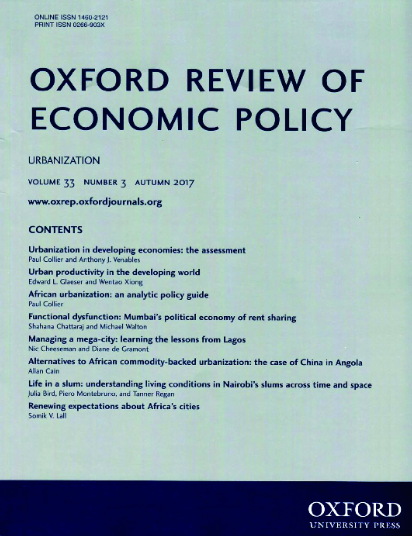富人是税收改革的障碍
IF 1.8
2区 经济学
Q2 ECONOMICS
引用次数: 1
摘要
在税制改革建议的最佳设计中,以及在决定何时以及如何推荐这些建议时,明确考虑政治可行性问题是有用的。在美国——或许在全世界——重要的政治障碍阻碍了重大累进税制改革的实施。仔细研究美国的民意调查数据就会发现,公众的反对并不是一个重大障碍:大多数人总体上支持累进税,并支持一些具体的累进税改革,包括提高个人所得税最高税率;对公司征收更高的税;增加对已实现资本利得的征税;对死者未实现的收益征税。但税制改革还存在其他严重的政治障碍,包括制度现状偏见,这使得任何重大政策变革(尤其是任何渐进式变革)都非常困难;以及来自商业公司和富人的强烈政治反对。现有最充分的证据表明,几乎所有美国企业,以及大多数千万富翁和亿万富翁,实际上都反对任何形式的累进税制改革。最好的证据还表明,这些公司和个人对政策制定的影响远远超过普通公民。我们提到了处理这个问题的一些可能的策略。本文章由计算机程序翻译,如有差异,请以英文原文为准。
The wealthy as a barrier to tax reform
In the optimal design of tax reform proposals, and in decisions about when and how to recommend them, it is useful to take explicit account of issues of political feasibility. In the United States—and probably around the world—important political barriers work against the enactment of major progressive tax reforms. A close look at US poll and survey data indicates that opposition by the general public is not a significant barrier: large majorities favour progressive taxation in general and favour a number of specific progressive tax changes, including higher top personal income tax rates; higher taxes on corporations; increased taxation of realized capital gains; and taxation of unrealized gains at death. But there exist other serious political barriers against tax reform, including an institutional status quo bias that makes any major policy change (especially any progressive change) very difficult; and strong political opposition from business corporations and wealthy individuals. The best available evidence indicates that nearly all US business firms, and most multi-millionaires and billionaires, oppose practically any sort of progressive tax reform. The best evidence also indicates that these firms and individuals exercise far more influence on policy-making than ordinary citizens do. We mention some possible strategies for dealing with this problem.
求助全文
通过发布文献求助,成功后即可免费获取论文全文。
去求助
来源期刊

Oxford Review of Economic Policy
ECONOMICS-
CiteScore
12.50
自引率
1.50%
发文量
41
期刊介绍:
The Oxford Review of Economic Policy is a refereed journal which is published quarterly. Each issue concentrates on a current theme in economic policy, with a balance between macro- and microeconomics, and comprises an assessment and a number of articles. It gives a valuable appraisal of economic policies worldwide. While the analysis is challenging and at the forefront of current thinking, articles are presented in non-technical language to make them readily accessible to all readers. The Oxford Review is aimed at a wide audience including government, business and policy-makers, as well as academics and students. It is required reading for those who need to know where research is leading.
 求助内容:
求助内容: 应助结果提醒方式:
应助结果提醒方式:


